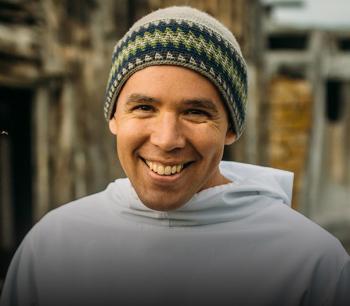Image Caption
Summary
Local Journalism Initiative Reporter
Windspeaker.com
Inuit Tapiriit Kanatami (ITK) President Natan Obed took part in a virtual panel Friday afternoon that discussed mental health in diverse communities.
The hour-long event was moderated by Dr. Jane Philpott, former federal minister of Health and later minister of Indigenous Services Canada, and now dean of the Faculty of Health Sciences at Queen’s University. The panel was held in conjunction with the Bell Let’s Talk awareness initiative on mental health. Philpott stated on the livestream there were nearly 1,000 viewers registered for the event.
The four-person panel also included Dr. Myrna Lashley, assistant professor in the department of Psychiatry at McGill University, Dr. Kenneth Fung, staff psychiatrist and clinical director of the Asian Initiative in Mental Health Program at Toronto Western Hospital, and Asante Haughton, a Toronto-based public speaker and human rights activist discussing mental health and its connectedness to racism.
Each of the panelists discussed how mental and physical health challenges have been illuminated in various Black, Indigenous and People of Colour (BIPOC) communities across Canada throughout the pandemic, as well as long-term existing social determinants of health.
“[Mental health] is an area near and dear to my heart,” Obed said in his opening remarks. Obed has served as president of ITK since 2015
In relation to the COVID-19 pandemic, Obed discussed some of the difficulties faced by the approximately 65,000 Inuit living primarily in 51 northern communities.
“We know the realities we face in our communities,” he said, stating that “52 per cent of our homes are overcrowded.” He said a lot of the public health messages towards social distancing and keeping a small circle of close contacts can be a challenge with a high number of multi-generational homes.
“People who want to do the right thing feel distressed that have no possible way to do it,” Obed said.
Obed’s talk covered the correlation between the suicide epidemic in northern communities and the increased influence of the federal government in northern lives, including the history of residential schools and the resulting traumas that occurred within that system.
“Inuit did not have an elevated suicide rate prior to the 1970s,” Obed said. “Suicide exists in every known society… but you can’t help but link the imposition of governmental control in our community [with the rising suicide rates]. These systems of government control are inherently racist and need to be actively anti-racist.”
Obed added that having a self-determined government structure provides a level of mental health support.
“But it doesn’t solve all of our challenges… We’re still dealing with the consequences of colonization in action,” Obed said. “We need a mix of Inuit and clinical mental health support.”
Due to a lack of health resources in their communities, some Inuit have been forced to travel to southern centres in order to receive basic health care. Obed discussed the added fear that can exist from this travel during the pandemic, highlighted by patients who have contracted COVID-19 in the south, and in some instances passing away there.
Obed also talked about the high rates of tuberculosis in Inuit communities and stated that the COVID-19 pandemic has many similarities.
“We’re very familiar with respiratory illnesses.” There is a goal of 2030 to have tuberculosis eradicated within the Inuit community.
Despite the many challenges he spoke about, Obed did also indicated there is hope within ITK’s population network.
“We are very fortunate that we are on the priority list in terms of the vaccine,” with the first dose of Moderna vaccines having been distributed now in some Inuit communities.
“It’s great to have that connection with the federal government and provinces and territories that recognize the very huge risks our communities face.”
Obed also discussed the importance of directing people towards professional resources if they are having personal mental health struggles.
“We can get stuck sometimes in feeling the inertia of not knowing how to move forward, but there is help. There are people you can talk to,” Obed said. “I don’t necessarily have the answers. I am not a mental health specialist. But often I can recommend a place to go.”
Obed also touched on the mental health aspects of something he said he always felt would happen but wasn’t sure when it would—the removal of Indigenous mascots and logos in major North American professional sports, including football teams in Washington and Edmonton, and the planned removal of Cleveland’s baseball nickname in the 2022 season.
“These were always racist. They always had a negative health impact,” he said. “[These name changes] are amazing lurches forward. For all of the awful things we’ve been through, I am hopeful because of what was accomplished.”
Local Journalism Initiative Reporters are supported by a financial contribution made by the Government of Canada.

